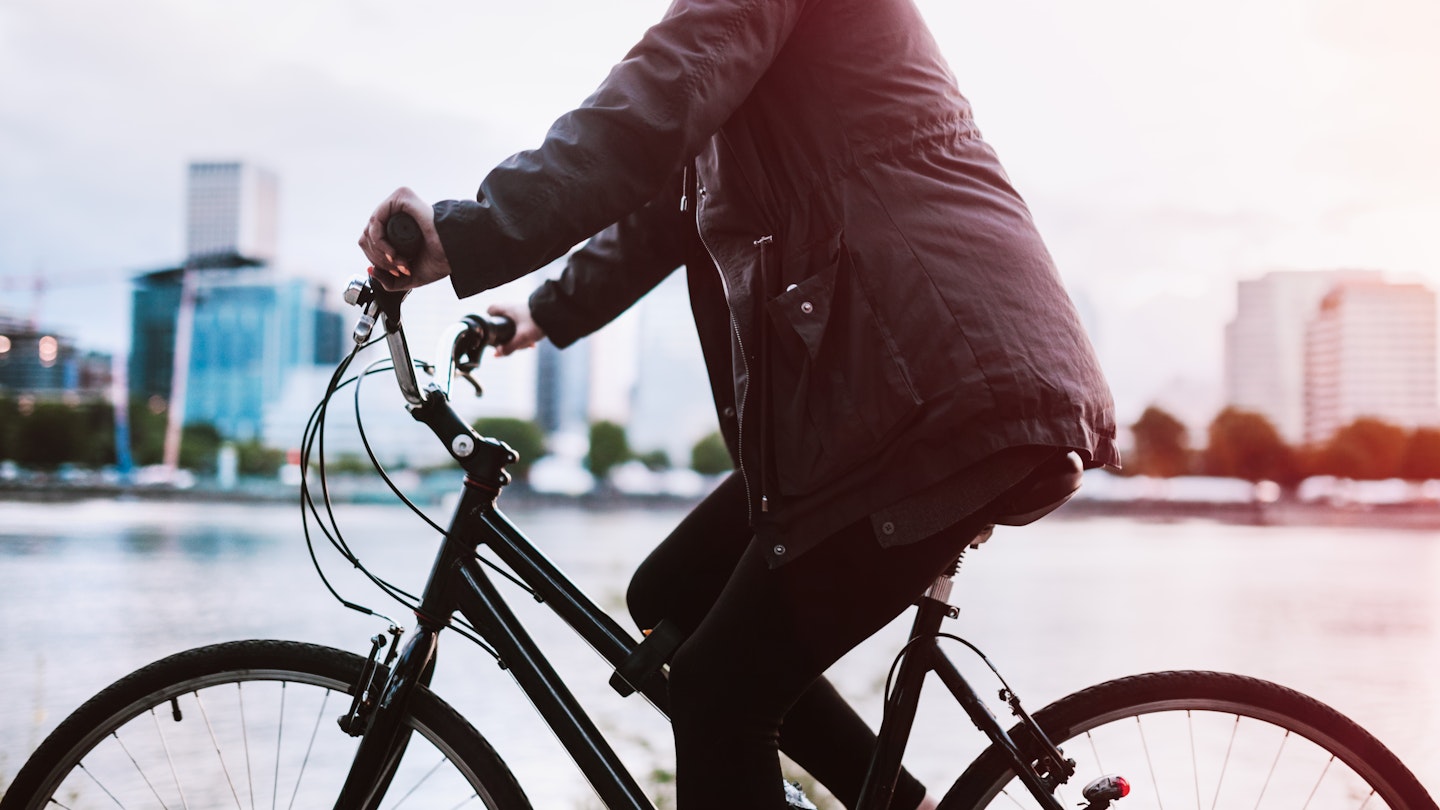If you spend any time in Portland, Oregon, two things quickly become apparent: bicycles rule and car traffic is terrible.
Portland has good public transportation that can get you nearly everywhere, and the cycling culture is strong. Cars are best left for locations further afield.
Here are the best ways to get around Portland.
Bicycle
Thanks to its plentiful bike lanes, a good bike-share system, and motorists who respect cyclists, Portland is often named the most bike-friendly city in the USA. Many streets are even geared specifically toward cyclists, indicated by figures on bicycles painted in white on the pavement and by green-painted zebra crossings at intersections. At some intersections, there are green “bike boxes,” which are designed to prevent collisions with vehicles making right-hand turns.
Portland’s bike-sharing scheme is called Biketown, which has 1500 bikes at more than 180 stations downtown and across several neighborhoods. If you’re in town for a while, several companies offer longer bicycle rentals. Check out Everybody’s Bike Rentals and Tours or Clever Cycles, which rents folding, family, and cargo bikes. There’s also the pub-cycle option: a 15-seat bicycle-powered mobile hut that lets riders pedal their way from one brewpub to the next along a themed route, such as dive bars or microbrews. Both BrewCycle and Pedalounge offer these tours.
Bus
The TriMet bus system has 84 lines through Portland. Interactive schedules and maps are available on the website, and TriMet’s tracker app lets you see details for every bus stop in the city in real-time. If you’re a night owl, be aware that there are fewer services at night, and most stop running at 1 am. Check the website for details on a specific line.

MAX Light Rail and Portland Street Car
The MAX light rail connects to most of the major metro areas (and suburbs) and is easily navigable. Buses connect with many stops. If you’re tired of walking downtown or near the river on the eastern side, the Portland Streetcar can get you close to where you’re going, provided where you’re going is within a minimal radius. For maps and trip planning, download the app for TriMet.
Transport Passes
All public transportation systems in Portland – buses, streetcars, and the MAX light rail – are run by TriMet, which has an information center at Pioneer Courthouse Square. Tickets for the transportation systems are transferable within 2½ hours from the time of purchase. Buy tickets for local buses from ticket machines as you enter. For streetcars, you can buy tickets at streetcar stations or on the streetcar itself. Tickets for the MAX must be bought from ticket machines at MAX stations before you board. There is no conductor or ticket seller on board, but there are enforcers.
TriMet’s Hop Fastpass card is a convenient way to pay for rides across all transport systems. You also get discounts when you ride – after paying for two $2.50 TriMet trips in one day, you’ll earn a pass that enables you to ride any system for free for the rest of the day. You can purchase and reload a Hop card at most convenience stores and grocery stores.
Virtual Hop cards are also available for download to mobile wallets on smartphones by downloading the Hop Fastpass app. You can also use Google Pay, Apple Pay, or Samsung Pay on all TriMet systems by tapping your device on the readers on board buses and at light rail and streetcar platforms. You will still automatically earn a day pass after paying for two trips in one day.

Car
Car traffic in Portland can be terrible. The city’s population has grown more quickly than its infrastructure, leading to the type of gridlock and bottlenecks that usually only happen in much larger urban areas. Cars are best for locations further afield, such as taking day trips from Portland. Parking on the east side of the city is generally easy to find. Downtown, SmartPark garages, some with electric-vehicle charging stations, offer affordable parking. Downtown, Northwest, and the Pearl District often have metered parking, and finding a spot here can be harder.
Taxi and Ride-Share
Cabs are available 24 hours by phone. Downtown, you can sometimes flag them down, and some bartenders will call you a cab on request. Broadway Cab and Radio Cab are two reliable operators. Rideshare services, including Uber and Lyft, are usually abundant in Portland.
Accessible Transportation in Portland
In general, Portland is widely accessible for travelers with disabilities, including its public transportation. To increase access to cycling, Biketown has a program called Adaptive Biketown that rents hand- and foot-powered recumbent bikes through a local agency. While anybody is welcome to rent the bikes, people with disabilities, those aged 65 and over, and others who self-identify as unable to ride a traditional two-wheeled bicycle receive discounted rates.
This article was first published Nov 29, 2017 and updated Jul 30, 2021.





